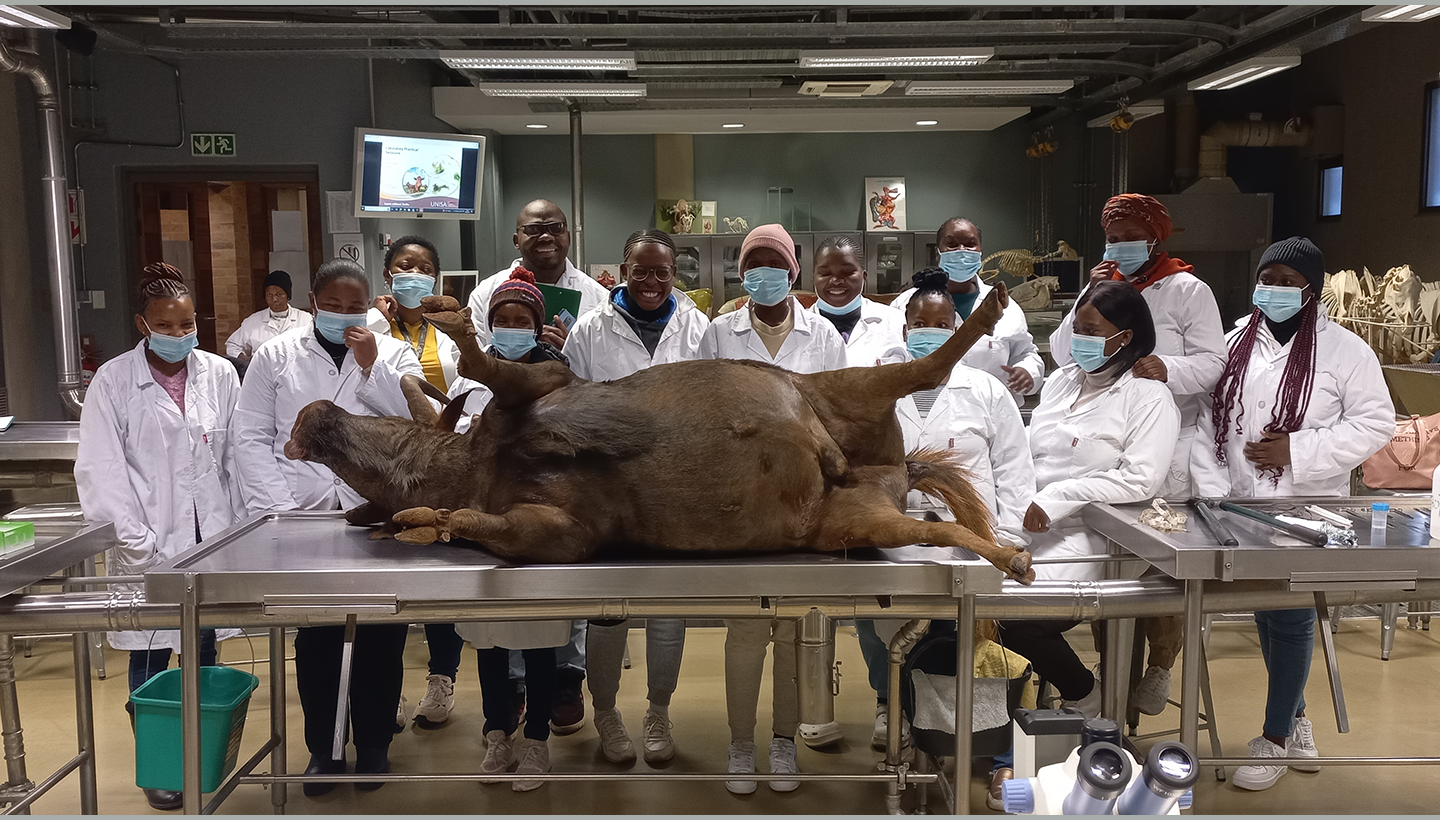News & Events
Facilitating specialist WIL opportunities for Nature Conservation students

Nature Conservation WIL students at the Florida Science Campus prior to their post-mortem exposure
Unisa’s Nature Conservation Work-Integrated Learning (WIL) students are required to gain specialised experience, including exposure to wildlife post-mortem procedures. However, the number of appropriate field opportunities is limited. To overcome this problem, WIL academics within the department have adopted an internal solution, conducting post-mortem sessions at Unisa’s Anatomy Laboratory in collaboration with the Animal Health team.
Over the past twelve years, excluding two years disrupted by the COVID-19 pandemic,18 post-mortem sessions have been facilitated. Each year, the laboratory is booked in advance, and arrangements are made with a local game farm to provide the carcass of an animal euthanised as a result of injury or illness. The WIL academic collects and stores the specimen at Unisa’s facility until it is needed.
Students are notified via myUnisa and given time to apply and plan their travel to the Florida Science Campus. Before each session, students are introduced to laboratory safety protocols and briefed on relevant wildlife diseases, particularly zoonotic risks, to ensure that they are well informed and safe in the lab and during future fieldwork.
The post-mortem session itself is conducted under the supervision of WIL academics and involves full student participation. Students are guided through the procedure, gaining direct experience with a wildlife specimen. Over the years, animals such as warthog, springbok, black wildebeest, blesbok, and, more recently, a red hartebeest have been examined.
These sessions are structured to help students achieve the qualification's specific curriculum and module outcomes. While they offer significant educational value and help students gain rare practical exposure, there are nevertheless difficulties associated with them. Students are responsible for their own travel, accommodation, and meals during their stay in Johannesburg, which can add to the financial burden they already bear.
Despite these limitations, the programme continues to meet its goals through careful coordination and collaborative effort. The Nature Conservation WIL academics, supported by the Animal Health team, provide students with vital hands-on learning that would otherwise be unavailable due to limited access to external post-mortem opportunities.
Incorporating WIL as part of a formal qualification involves substantial planning and resource allocation. This example underscores the importance of institutional support in meeting the unique demands of WIL, particularly when field-based exposure is specialised and scarce.
* By Graeme Wilson, Manager for WIL, Directorate: Instructional Support and Services
Publish date: 2025-08-12 00:00:00.0

